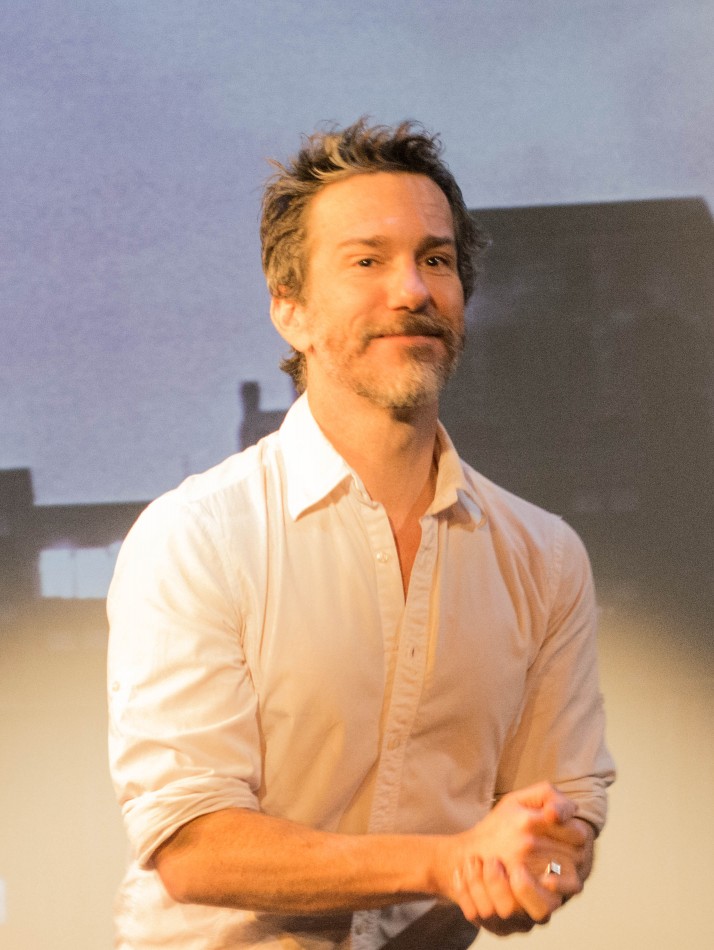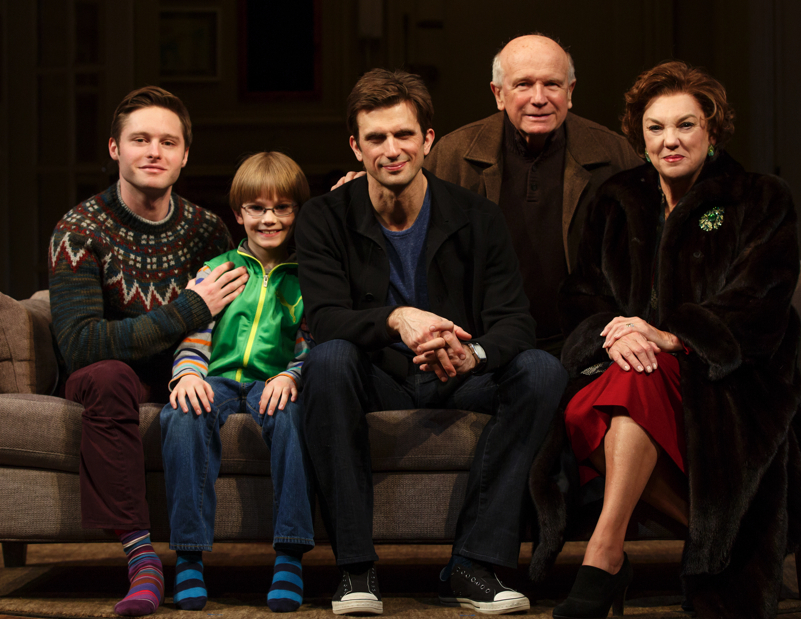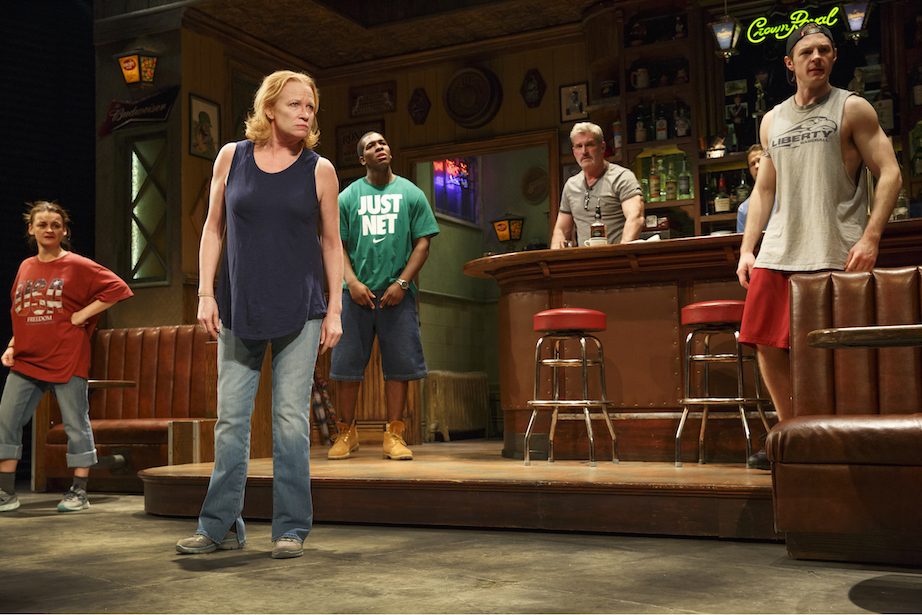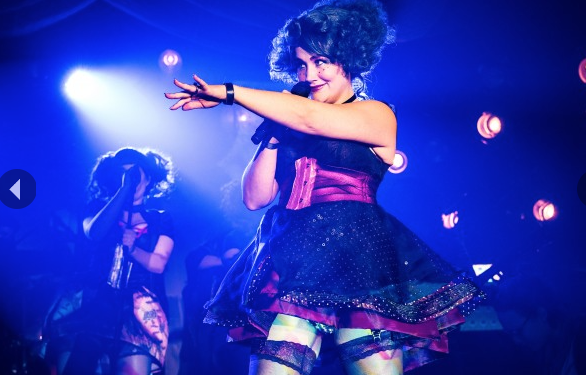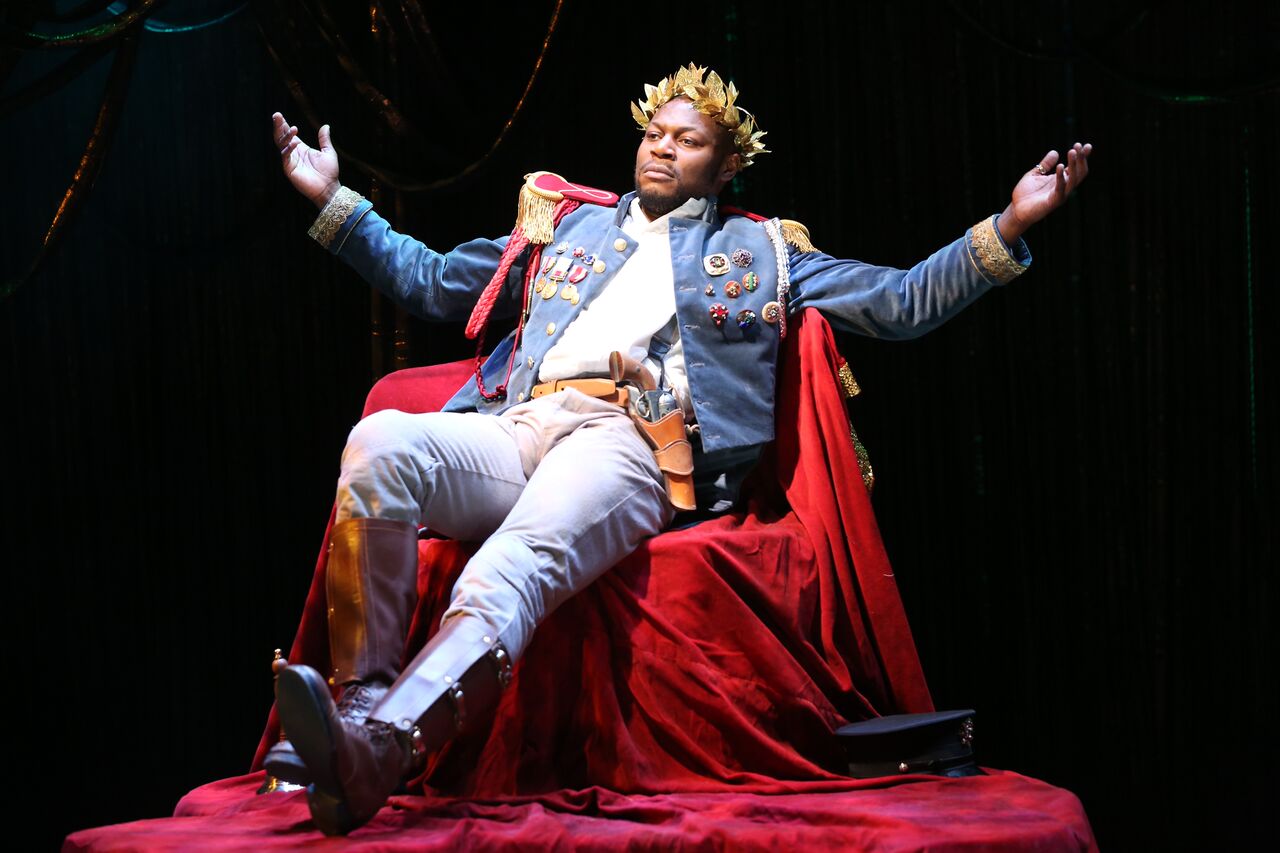

Mike Albo
By Eric J. Grimm
Two solo shows by Culture Project are currently running in repertory at the Lynne Redgrave Theater. Both The Real Americans and The Junket look at how their creators struggle to fit into American society with humorous and tragic results. Dan Hoyle takes a break from hipsterdom and brunch to journey to the heartland in search of those who Sarah Palin deemed “The Real Americans.” Mike Albo’s journey takes him to Jamaica on a frivolous junket for a men’s lifestyle website with serious repercussions back home in New York. In both pieces, the performers excel at creating distinct characters with varying physical and vocal mannerisms while telling hilarious and unsettling stories of what it means to be a writer in America.
Dan Hoyle takes a traditional documentary theater approach to telling the story of The Real Americans. He employs an amusing framing device of sorts that features caricatures of his brunch pals in San Francisco. He skillfully shifts between characters in the odd group of friends, which include a freegan, a constantly occupied businessman, a self-loathing Midwesterner, and a dippy optimist. These scenes, and a few others set in rural America, are not always successful because Hoyle hasn’t quite mastered the art of playing women. He’s fully committed for sure, but his female characters often come across as effeminate men.
Hoyle is at his best when he goes for extremes. His best character is a mechanic whose southern accent is so thick he needs projected translation. It’s a fascinating segment where I marveled at how calculated his actions and speech were. He goes through the motions of fixing a van while rattling off his life philosophy in a rapid-fire manner. It is thrilling and hilarious character work that often comes across as acrobatic. He additionally plays black and Dominican characters with no sense of racist parody. He recognizes the value of their stories and sees a full commitment to their personal storytelling methods as the only way to fairly represent them.
So much of Hoyle’s piece is a balancing act. I can’t help but wonder if the odious brunch friends were added to the show once he realized that the majority of his interviewees were angry conservatives bemoaning large government and declining morals. Hoyle acknowledges a perceived failure in his experiment as he continues to encounter individuals who deny science and believe that President Obama is a Muslim. Despite his frustration, Hoyle does succeed by giving his own ethical stances equal weight to his friends and interviewees and in the process creates an evenhanded portrait of the insulated nature of narrow-minded Americans.
Where Hoyle’s road trip took him all over America, Mike Albo’s trip in The Junket took him on a life-altering round trip from New York to Jamaica. Albo isn’t interested in multiple subjects’ narratives, but his own tragicomic tale of losing his prestigious, if poorly paying, writing gig speaks volumes about the evolving—or flat lining—print media market and the tricky and often terrifying life of a freelancer.
Albo’s well-documented fall from grace involves many popular brands, websites, and publications whose names he changes for legal purposes. It’s all thinly veiled but he commits to his name changes, rattling off “The New York Tomes” as if it were actually the name of the world’s most famous newspaper founded 163 years ago. He goes through the events of the ridiculous junket and his firing from “The Tomes” without pulling any manipulative dramatic punches. He realizes the absurdity of the whole affair, both his fixation on being a poorly compensated freelancer for a prestigious publication and that publication’s ludicrous assertion that he violated their code of ethics. The result is a brisk piece of theater that is frequently hilarious.
Much of the show’s triumph is in its assured gayness. Albo doesn’t fashion many individual characters but two of his most memorable creations, a snobby male magazine editor and a vapid female blogger, have similarly grating and superior speech patterns befitting Albo’s disdain and obsession with them. He does well by his straight male characters, whose hyper masculinity naturally makes them seem even gayer. Moreover, Albo’s narrative of failure dispels the myth of gay affluence perpetuated through sitcoms. He runs in fashionable circles but can never really seem to catch a break. Luckily, it’s not a pity party. Albo has the last laugh in the show as he proves himself to be a funny and thoughtful storyteller with a confident and almost musical vocal delivery. I’d certainly pay to have him read me “The Tomes”.
www.cultureproject.org 866-811-4111 45 Bleecker Street, NYC
Both shows run thru April 20th


